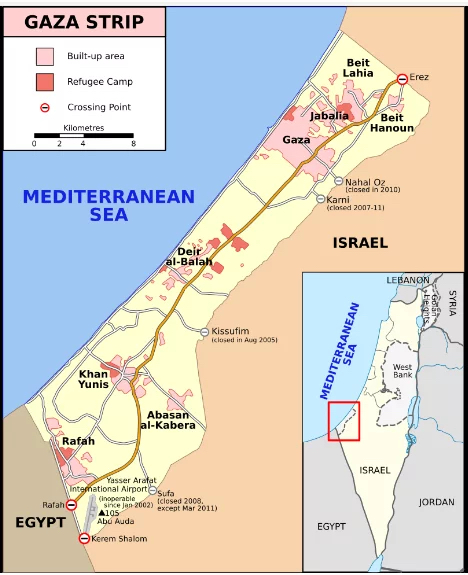theatlantic | Hamas’s surprise attack on Israel has laid bare an uncomfortable truth: The fearsome reputation of the Israeli military, like that of Israeli intelligence services, may be overdue for a revision.
Israel has an excellent air force and elite special-operations units, but its conventional line units—made up mostly of conscripts—are neither particularly well trained nor well disciplined by American standards. These units are still demonstrably superior to those of Israel’s adversaries from wars gone by, such as Egypt, Syria, and Jordan. But today Israel faces highly disciplined and motivated nonstate foes in southern Lebanon and the Palestinian territories, and its military does not seem to have a clear advantage over them at the unit level.
The United States provides Israel roughly $3.8 billion a year in military assistance. (Last year, only Ukraine received more.) That money allows Israel to purchase expensive weaponry, such as F-35 aircraft, that it would otherwise struggle to afford. The two countries review and agree on the amount of aid every 10 years; when we signed our most recent memorandum of understanding with Israel, in 2016, I was the Pentagon’s senior representative, taking part in several months of negotiations in Washington, Tel Aviv, and Jerusalem. I had a chance to look under the hood of the Israeli military, and I came away hugely impressed with the Israeli officers with whom I worked. But I was also frankly worried about what the next war might look like.
Even then, Israeli military officials knew that the country was vulnerable to infiltration operations, such as the one Hamas has just executed. They judged Hezbollah likely to consider such tactics in any new clash. Hamas itself had pulled off a similar operation in 2006, albeit on a much smaller scale, when it kidnapped the Israeli soldier Gilad Shalit, whom it held captive for more than five years. Israel knew that more of these kinds of attacks were coming, and yet somehow, it was caught completely off guard when they did.
The intelligence failure—which you can be sure Israelis will carefully review—does not surprise me. Few Americans fully appreciate the trauma that the Second Intifada, from 2000 to 2005, left behind. Israelis built walls, both physical and mental, between themselves and their Arab neighbors. I remember asking multiple Israelis in Jerusalem for directions to Ramallah, a Palestinian city roughly 12 miles away, in 2009. None of them had any idea how to get there. The Palestinians were both out of sight and out of mind, and after the ordeal of the preceding years, that was precisely where many Israelis wanted them. But the Palestinians never actually went anywhere. This lack of intimacy, together with Hamas’s expulsion of other Palestinian factions from Gaza in 2007, has surely hindered Israel’s ability to understand what is going on inside Gaza.
More worrying, and more structural, are the complacency and lack of discipline that not only cost Israel in the opening stages of this new war but will likely continue to do so. I spent almost three years in Lebanon in the mid-2000s and wrote a doctoral dissertation on Hezbollah’s evolution as a fighting force. The few Hezbollah fighters I met in those days struck me, for the most part, as motivated, well trained, and disciplined. Those who fought in the 2006 war with Israel retained a certain amount of wary respect for the U.S. military but held their Israeli adversaries in contempt. They had seen Israeli soldiers in action—and had not been impressed.
Israel does an excellent job—arguably better than the U.S. military—of learning from its tactical and operational failures. But the country’s semiprofessional military relies heavily on conscripts and reservists, which places it at a disadvantage in many respects. Full-time, professional militaries can dedicate themselves to rehearsing collective tasks that high-intensity combat situations often require: reacting to ambushes, conducting raids, incorporating artillery and airpower into maneuvers. Conscript militaries, by contrast, are forever bringing on and training new people. The turnover is often too high to allow units to develop proficiency in the most complicated military tasks.
Israel’s conventional forces, moreover, seem to spend less time rehearsing combined arms operations than they do policing the occupied territories. Indeed, what few active-duty battalions Israel has appear to have been deployed away from the south and to the West Bank to safeguard settlers during the holiday. Such policing operations, in addition to pulling needed units away from other priorities, are poor practice for more high-intensity combat.
Many Israelis in uniform look unkempt and even slovenly, which can be somewhat charming—the contrast with, say, a U.S. Marine can be stark—but the closer one looks, the more one wonders if such appearances betray a certain nonchalance about the profession of arms. In nearly every war Israel has fought since 1967—1973 and 2006 come most immediately to mind—Israel’s armed forces have been slow out of the starting blocks. Discipline is another issue: In 2006, Hezbollah was able to locate Israeli positions by intercepting Israeli reservists calling home on their mobile phones.



